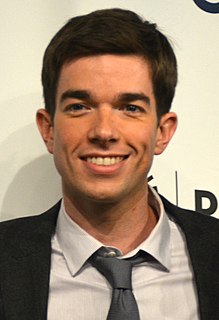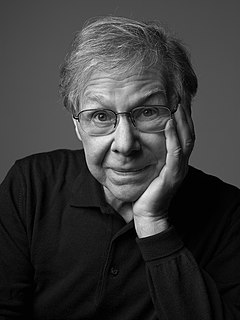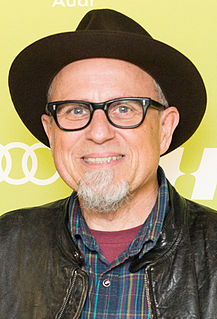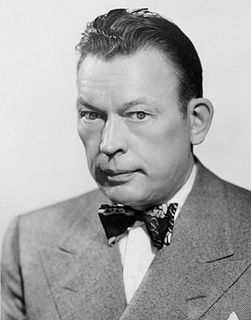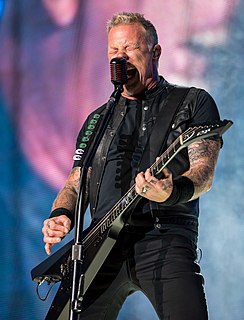A Quote by Zach Anner
I had to write a comedy set and film a show at the same time. And it's the second time I've been up on stage as a stand-up comedian with untested material. I was saying it out loud for the first time that night. It didn't go how I expected, but in the best possible way.
Related Quotes
You forget that sometimes comedy is just a big night out for people. Almost every show, people come up to me and go, 'This is the first comedy show I've ever seen,' so you want to do well. If you do horribly at somebody's first time seeing live stand-up, well, you've not only tainted yourself, you've tainted a whole art form.
You know how hard it's been to write material? Because to do stand-up comedy, it takes time for the material to develop. So you'll come up with a joke, you'll tweak it, you'll work it for six months, you really fine tune it, and now you've got a good bit. Well, with Trump, every day there's something new coming out.
Conclusions are based in time. We live in time. So any definition of success is bound up with time. With other things you can say, "Can I yo-yo? Can I juggle?" Usually you have a pretty small window in which to get your answer. Stand-up is different. You can't do stand-up for one night and say, "Am I a funny stand-up comedian?" In two months or two years you'll start to realize it.
In the stand-up comedy top, there's room for everyone - if you're good, there's room for everyone. You'll put on your own show - no one casts you. You cast your own show as a stand-up comedian. When you get good at stand-up comedy you book a theater and if people show up, people show up. If people don't show up, people don't show up. You don't have a director or a casting agent or anybody saying if you're good enough - the audience will decide.
My first time on TV doing stand-up, I actually did this show in Holland called 'The Comedy Factory' hosted by Jorgen Raymann. It was in 2006 in Holland. It was amazing. I had only been doing stand-up for four years, and I booked that gig through the Just For Laughs Montreal festival, and they flew me out and put me up.
Before I even knew what stand up was, I tried to make people laugh at school because that was how I made friends, so I think that's how I got drawn into comedy and obviously I was just some kid at school being silly, so the first time I saw a professional comedian and how smooth and funny the person was I totally got into standup and I would say obviously Richard Pryor was the guy. He's the greatest of all time and then George Carlin, Sam Kinison, Bill Cosby. It's so weird to bring up his name now but leaving out his off-stage antics... you could learn a lot from him.
I was new to acting on a stage in a narrative as opposed to acting on a stage as a stand-up. And like everything else it's just like comfort level. The first time I did stand-up I was at a place called the B3 in New York on Third and Avenue B and I not only didn't take the mic out of the stand, but I clutched the stand of the entire time.
Whether you do stand-up comedy or write a story, you have a duty to deliver. As a comedian, you walk out on stage, and you have a minute to hook them, or they'll start booing. As a writer, it's very similar. A reader doesn't have time to say, 'I'll give him 50 pages, as it's not very good yet, but I hope it'll get better.'
Every show is a mess at its first preview. No one's had enough time to rehearse in costumes, traffic patterns backstage haven't been worked out, machinery weighing thousands of pounds is being operated for the first time. And, also, it's the first time all the material you've written is before the public.
I think it's because if I have the time I take the time to sign every autograph I can after a show. I'll go out of my way when a lot of other guys wouldn't do this. Things like that create so much longevity in your career because that guy or girl you met that night will go home and talk about how cool Jeff Hardy was that night and then that makes their friends want to come out to the show next time you're in town.
The earliest stand-up comedy I was aware of was Bill Cosby. I watched Saturday Night Live as soon as I was aware of it, and Monty Python used to be on PBS at weird hours, so I used to try to watch that. And I loved George Carlin on SNL, that was the first stand-up I ever really remember seeing on TV. And then Steve Martin. I guess I was in fifth or sixth grade when Steve Martin showed up, and he was instantly my idol. And Richard Pryor around the same time too, I sort of became aware of him, though I don't remember the first time I saw him.
I was doing a college show for the first time, and there was this 20-year-old gay male who's been diabetic his entire life. He said, 'I really wanna get into stand-up.' I was like, 'Oh, my God, do you realize how interesting and inherently funny you are? Go do all the comedy that you wanna do.' I care about that.






